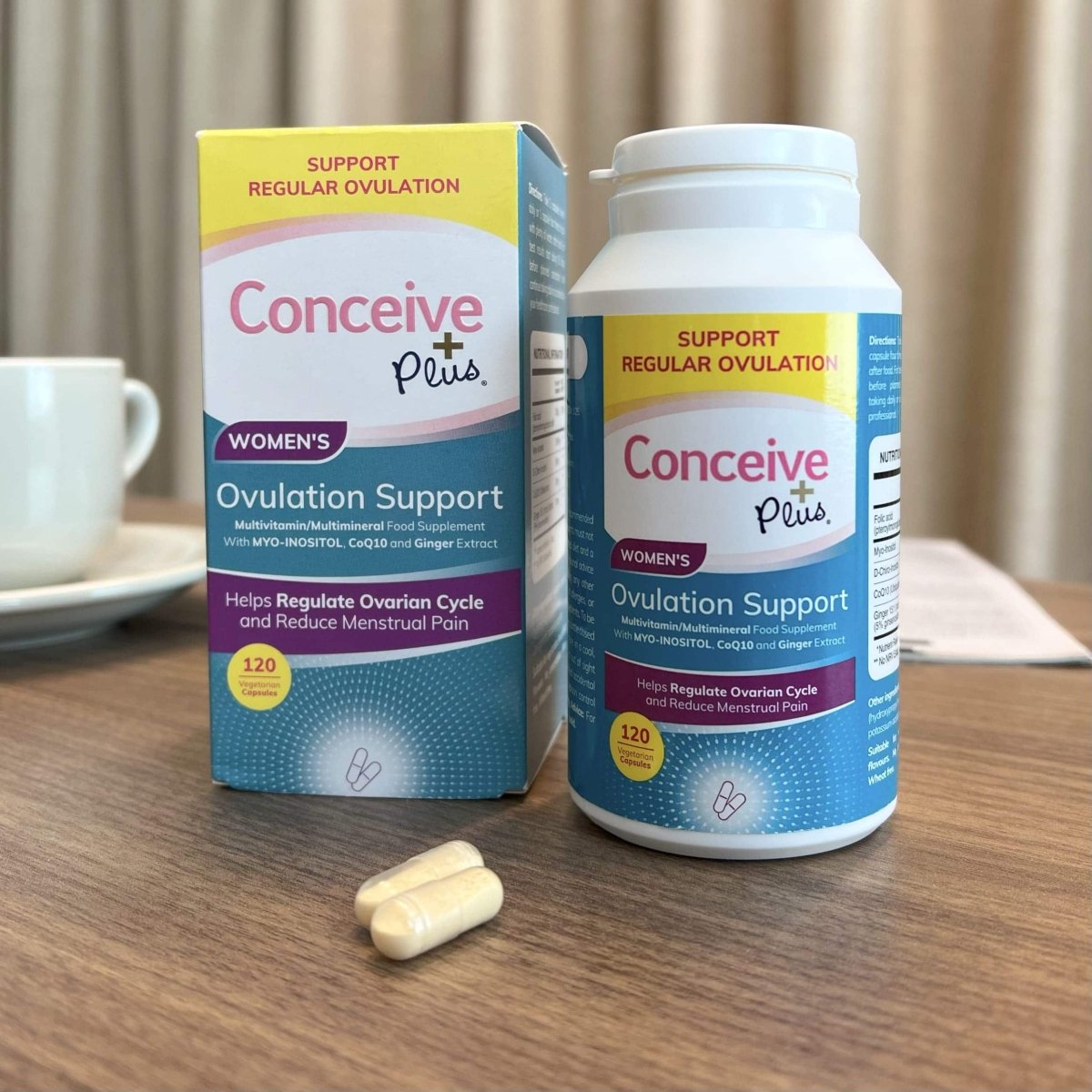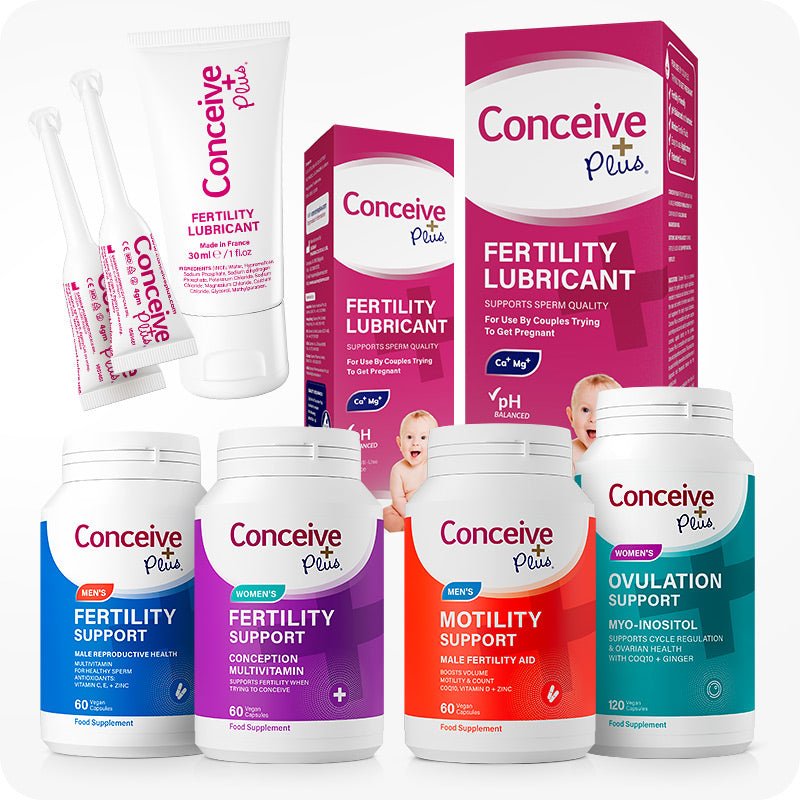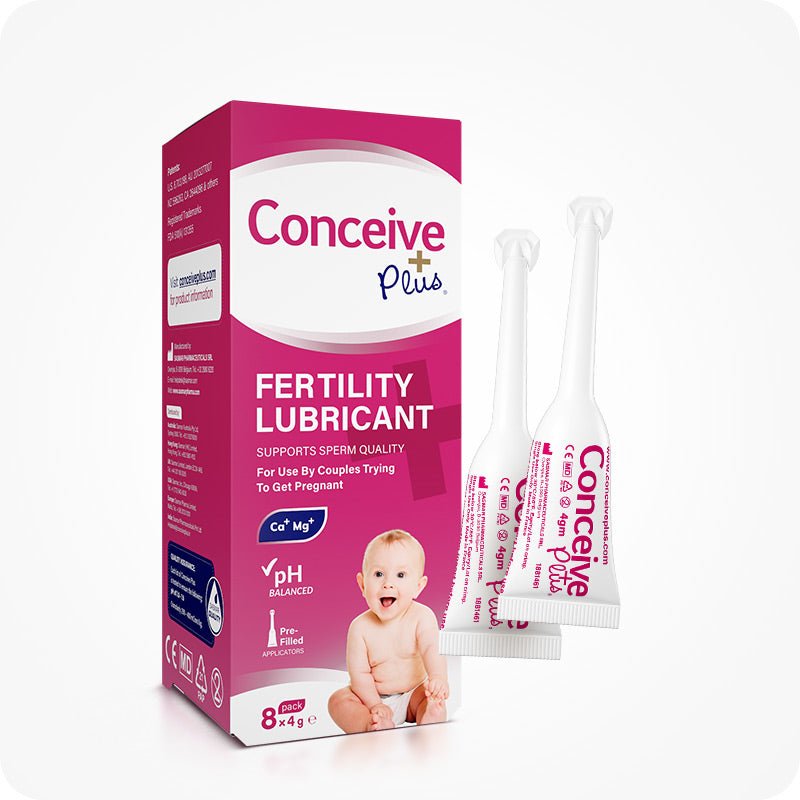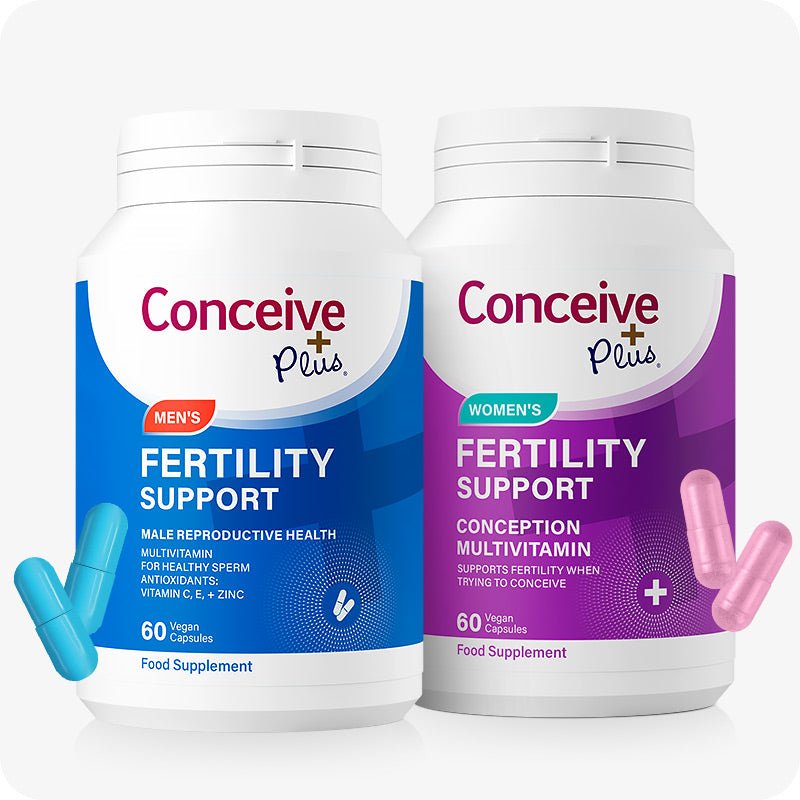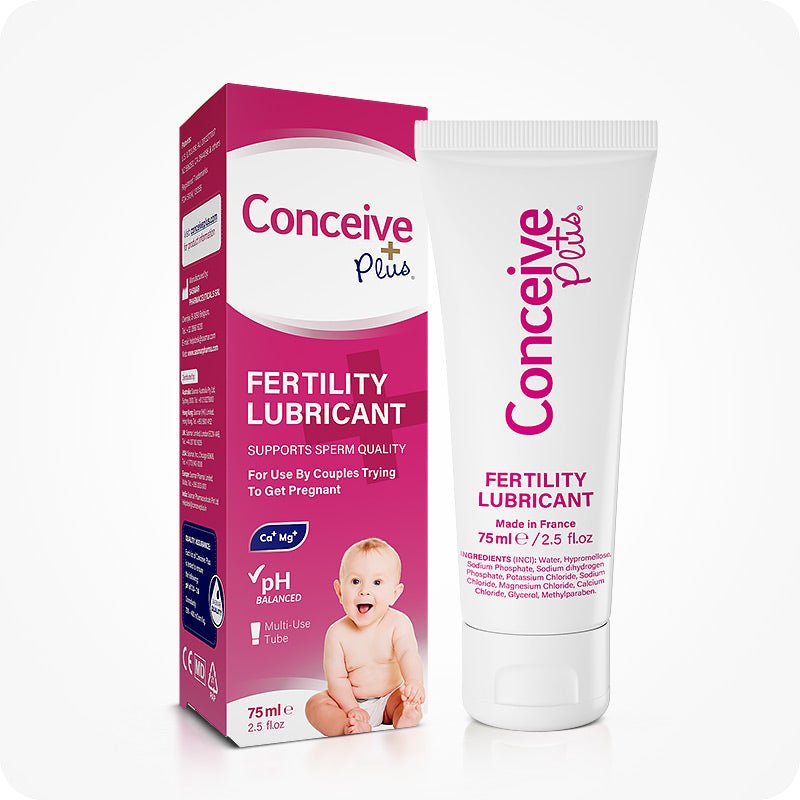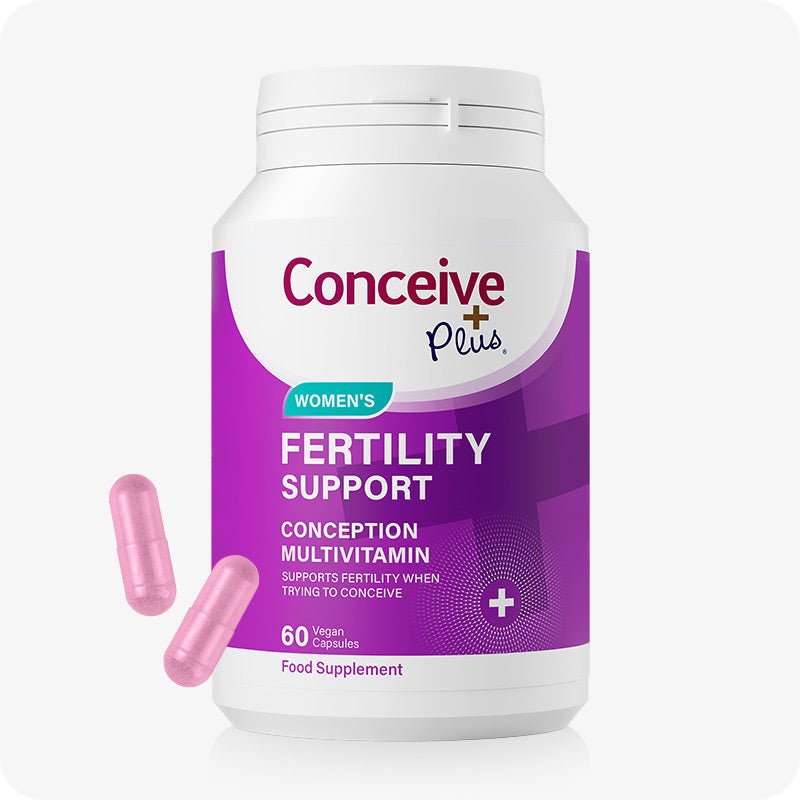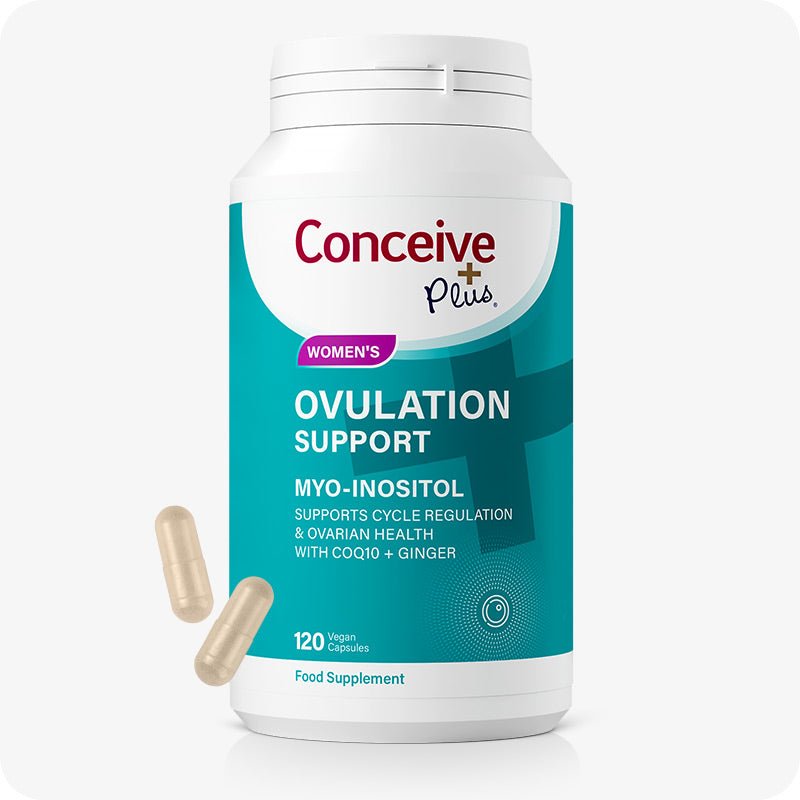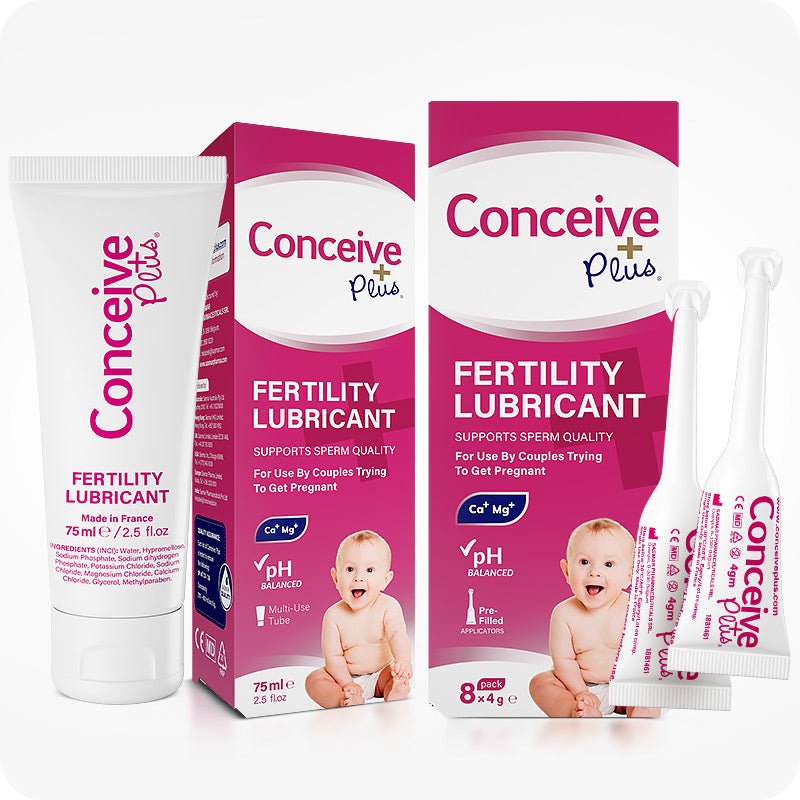Is Choline Inositol Important When Trying to Get Pregnant?
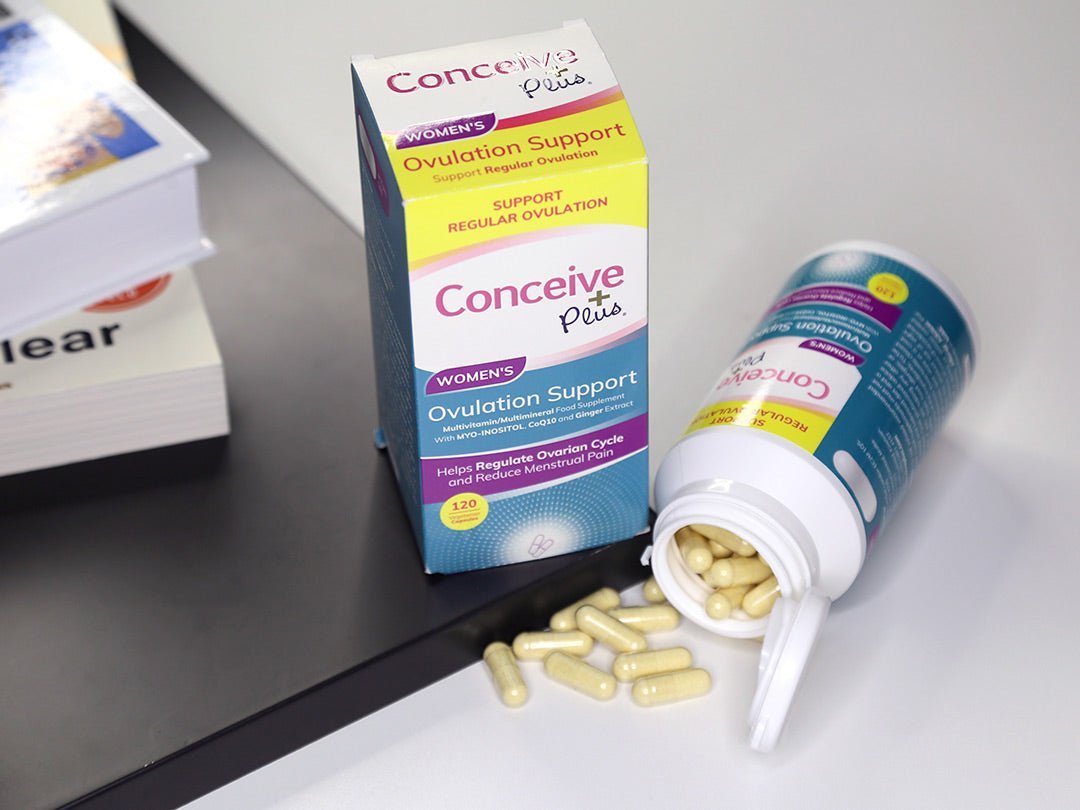
Choline and Inositol are two essential nutrients for maternal and foetal health and are highly recommended for women trying to conceive. Although particularly helpful for women with cycle irregularities and Polycystic Ovary Syndrome (PCOS) [1], Choline Inositol can be taken in supplement form by any woman to enhance fertility.
This article explains the benefits of choline&inositol for improved fertility when trying to get pregnant, the benefits of choline vs inositol, and whether it’s a good idea to take choline and inositol together.
What Is Choline?
Produced in small amounts in the liver, choline [2] is a vitamin-like substance, although it is neither a vitamin nor a mineral. It plays a crucial role in many body functions, including hormone regulation, brain development, fat transport, liver health, metabolism, gene formation, and nervous system function.
Although the benefits of choline for the human body have long been recognised, recent findings have proven that it is just as important as folic acid for foetal brain development and the foetal nervous system.
Despite being produced by the liver, researchers have found that these natural amounts are often insufficient for optimal health. Choline is also found in various foods like eggs, meats, fish, and some vegetables, but it can be difficult to measure and consume sufficient amounts.
When trying to get pregnant, fertility specialists therefore recommend daily choline supplements.
How Does Choline Help When Trying to Conceive?
Research indicates that increased choline can regulate female hormones and improve ovarian function. Taking choline during pregnancy has also been found to enhance a baby’s brain development and provide cognitive benefits for the rest of their life.
During pregnancy, the call for choline in the female body rises due to its important role in both foetal development and maternal health.
Choline also plays a role in hormone regulation, meaning it can help women with PCOS and menstrual irregularities. By regulating hormones, menstrual cycles can become more regular and women hoping to conceive can pinpoint ovulation more easily.
This allows couples to have sex during the most fertile window each month and significantly improves the chances of conception.
What is Inositol?
Inositol [3] is a form of sugar the body naturally produces to aid the brain and nervous system. Also referred to as vitamin B8, despite not being a vitamin, inositol helps to regulate moods by influencing neurotransmitters like serotonin and dopamine. It also aids in the metabolism of fat and cholesterol and helps regulate the reproductive hormones.
Although naturally found in foods like beans, corn, grains, legumes and nuts, it is challenging to ensure enough inositol is consumed by food alone. Particularly when suffering from PCOS and trying to conceive.
How Does Inositol Help When Trying to Get Pregnant?
Inositol, particularly in the form of Myo-inositol and D-chiro-inositol, can be very helpful in balancing the hormones necessary for female reproductive health, fertility, and conception. It also improves ovarian function by helping to develop healthy follicles and contributes to higher-quality eggs for better fertilisation and implantation.
How Does Inositol Help Women with PCOS to Get Pregnant?
Inositol is especially helpful for women with Polycystic Ovary Syndrome (PCOS) due to the effects it has on insulin and androgens. Many women with PCOS suffer from enlarged ovaries, insulin resistance and the overproduction of androgens by the ovaries. Such irregularities can cause irregular cycles, hormone imbalances, disrupted ovulation, and sporadic egg release.
When trying to conceive, irregular ovulation and sporadic egg release can make it challenging to understand when your fertility window occurs each month.
Inositol, especially Myo-inositol and D-chiro-inositol helps women with PCOS in several ways.
Hormone Balance
Inositol helps to re-balance hormones and reduce the over-production of androgens. Normalising androgen levels helps to regulate menstrual cycles and promote more consistent ovulation to help with conception.
Improve Insulin Sensitivity
By improving insulin sensitivity, primary symptoms of PCOS like facial hair growth, weight gain, and acne are reduced. Sometimes, dealing with these symptoms can lower a woman’s libido and reducing them can be conducive to more frequent and enjoyable sex.
Better Ovarian Function
Inositol supports ovarian health by improving the development of healthy follicles. This can lead to more frequent ovulation and improve the likelihood of successful conception.
Enhanced Egg Quality
By improving ovarian function and hormone balance, inositol can contribute to a higher quality of eggs for successful fertilisation and implantation.
Reduces Symptoms of PCOS: In addition to its direct effects on fertility, inositol can help alleviate common PCOS symptoms like irregular periods, acne, and excessive hair growth, which can indirectly support a healthier reproductive environment.
Overall, inositol provides a multifaceted approach to improving fertility by addressing insulin resistance, hormonal imbalances, and ovarian function, making it a valuable supplement for women looking to enhance their chances of getting pregnant.
Is it Safe to Take Choline and Inositol Together?
Yes. Inositol/choline supplements work well together [4] and are typically well tolerated, with no adverse side effects to their synergy as long as they are used within the recommended guidelines. Due to their complementary roles in supporting both the reproductive system and a growing foetus, many prenatal supplements and fertility supplements include both choline & inositol.
In addition to supporting fertility and insulin sensitivity in women with PCOS or menstrual irregularities when trying to conceive, combining choline/inositol can help throughout pregnancy to boost foetal development and ongoing maternal health.
For expecting moms, a daily intake of choline and inositol [5] helps support cellular health, brain function, and liver health. The combination also aids in regulating moods, and metabolising fats and cholesterol.
For a growing foetus, taking choline and inositol helps augment brain development, prevent neural tube defects, and instigate lifelong cognitive abilities.
The Bottom Line
Inositol and choline are two vital nutrients for boosting female reproductive health when trying to conceive and throughout pregnancy. Inositol helps with hormonal balance and insulin sensitivity, which can particularly benefit women with PCOS. Choline supports foetal brain development and overall maternal health.
Combining Choline Inositol is also safe and beneficial for most women, however, it’s always best to consult with a doctor before taking supplements on top of other medication and to check what dosage is right for your situation.
References
- Endocrine Society – PCOS - https://www.endocrine.org/patient-engagement/endocrine-library/pcos
- WebMD – Choline - https://www.webmd.com/vitamins/ai/ingredientmono-436/choline
- Cleveland Clinic - Inositol - https://my.clevelandclinic.org/health/drugs/25173-inositol
- Understanding Choline Inositol and Its Benefits - https://www.landyschemist.com/choline-and-inositol-benefits
- National Library of Medicine - Choline Supplementation in Pregnancy: Current Evidence and Implications - https://www.ncbi.nlm.nih.gov/pmc/articles/PMC10709661/






